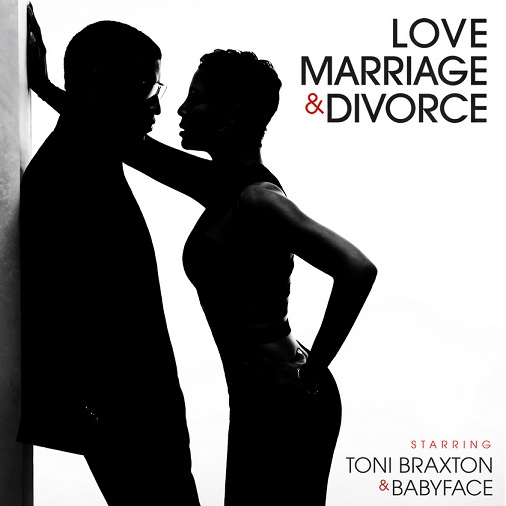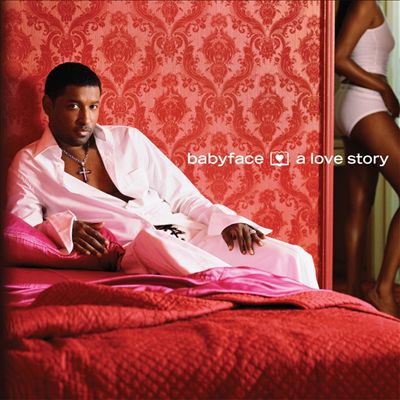
A year ago today it was over. And 24 hours later I was fine with that.
On September 9, 2013, I posted what turned out to be the final edition of this collaborative series with Jeff Giles and Mike Heyliger. At the time I didn’t think it’d be the final one, but a few days later, after breaking up with my girlfriend of five years, I knew I’d have to put ‘Face Time on hold for at least a couple weeks, especially since I would soon be moving out of the apartment I shared with said girlfriend.
On September 24, the eve of my 38th birthday, my parents’ friends let me move into their basement, and though that may not sound like the recipe for the happiest birthday, knowing that I wasn’t making someone miserable for the first time in a long time, and vice versa, was a relief. Freedom can be a powerful hallucinogen.
But I never did get back to ‘Face Time during the remainder of 2013.
I was hoping that Jeff, Mike, and I could still cover Babyface’s songwriting and production work for younger artists like TLC (“Baby-Baby-Baby,” 1992), Usher (“If I Want To,” 2001), En Vogue (“Whatever,” 1997), Mary J. Blige (“Missing You,” 1997), and Backstreet Boys (“Time,” 2000), legends like Aretha Franklin (“Willing to Forgive,” 1994), Carole King (“You Can Do Anything,” 2001), Lionel Richie (“Ordinary Girl,” 1996), Diana Ross (“Swing It,” 1995), and the Isley Brothers (“Tears,” 1996), and the assorted fruit flavors of Celine Dion (“The Power of the Dream,” 1996), Color Me Badd (“From the Back,” 1996), Shaggy (“Showtime,” 2002), Sheena Easton (“The Lover in Me,” 1988), and recently crowned pop princess Ariana Grande (“Baby I,” 2013). But after I’d finished moving everything I own into that basement (my second of three moves in a span of less than eight months — I don’t recommend it), I got a new full-time job, my first in almost five years, and suddenly a new source of stress had presented itself.
 Fall came and went.
Fall came and went.
Then, in February, Babyface released his first new album of original material in nine years, Love, Marriage & Divorce, a collaboration with onetime protégée Toni Braxton. (He’s credited as the sole producer of all but one track, while the songwriting is mainly handled by various combinations of the two singers and longtime Babyface colleagues Daryl Simmons and Antonio Dixon.) I figured I’d make it the focus of the final ‘Face Time post later that month.
Then winter came and went.
Spring too — but, in my defense, it only lasts a few days here in Chicago — and I hadn’t even bought the CD yet. Finally, in mid-June I read a review of Love, Marriage & Divorce by Kevin Krein on his blog, Anhedonic Headphones, that convinced me to brave the crowds of credit-card hackers at Target on the way home from work (although with a name like that you were kind of asking for it, Target) and purchase a copy. Krein is absolutely right: “The record as a whole is smooth, it’s fun, it’s funky and soulful, and it’s well thought out.”
It’s also funny. As Krein mentions in his review, Babyface’s one non-duet track on the album, the lilting, melancholy “I Hope That You’re Okay,” in which the protagonist attempts to have a mature outlook on the end of his relationship (“And I hope that we are good / You know, that the feeling’s mutual / We can work it out / And go our separate ways”) in a fashion reminiscent of ’70s R&B classics such as the Spinners’ “I’ll Be Around” and Teddy Pendergrass’s “I Don’t Love You Anymore,” is sequenced directly ahead of Braxton’s self-penned, nakedly honest “I Wish,” one of her two solo numbers: “I hope you’re unhappy / And I hope, I hope, I hope / She gives you a disease / So that you will see / But not enough to make you die / But only make you cry / Like you did to me.”
In other words, “You hope I’m ‘okay’? Fuck you.”
Love, Marriage & Divorce is “grown folks’ music” at its finest, in part because Babyface and Braxton — who are 55 and 46, respectively, and whose vocals have lost none of their sensuality over time — acknowledge that adults don’t always act grown when emotions are running high. As indicated by its opening track, “Roller Coaster” (“We ain’t going nowhere, darling / Just hold on for the ride”), the album runs the gamut of those emotions, from guilt (“Hurt You”), disgust (“I’d Rather Be Broke,” Braxton’s second solo track and a playful reference to her two real-life bankruptcy filings), and regret (“Where Did We Go Wrong?”) to lust (“Sweat,” which is either about the joy of makeup sex or the surprising satisfaction of angry sex) and longing (“The D Word,” the album’s haunting closing number: “Although we’re apart / You still own my heart / Forever and ever and ever”).
Love, Marriage & Divorce is unquestionably a major highlight of Babyface’s career as a singer, songwriter, and producer, but Braxton, who deserves equal praise, seems to have provided the spark he needed to create his best album since “A Love Story” a decade earlier.
If you’ve never heard of “A Love Story,” that’s because Arista Records shelved it in 2004, allegedly because the planned first single, “The Loneliness,” didn’t make much of an impression on urban radio. That song, along with remixed updates of two others (“God Must Love U,” “The Gettin’ to Know U”), surfaced a year later on Grown & Sexy, which isn’t an embarrassment by any means — Babyface’s gift for melody and songcraft rarely lets him down — but it does remind me of something Chris Rock said in his 1996 HBO stand-up special, Bring the Pain: “You know why you gotta settle down eventually? ‘Cause you don’t wanna be the old guy in the club. You know what I’m talking about: Any club you go into, there’s always one old guy. He ain’t really old — just a little too old to be in the club. You don’t wanna be that brother.”
Sex sells, not love — or “A Love Story,” for that matter, since Arista never gave it a chance — so Babyface tries to prove he’s learned more from Prince than how to shorten “you” to one letter. “Excuse me if I kiss it for a little / Girl, I like it when it’s nice and wet,” he sings on the opening track, “Tonight It’s Goin’ Down,” while on “Can’t Stop Now” he pleads, “When I kiss it a thousand times / All up and down your thighs and all around it / Take off your clothes and come to me / I want to make your body feel like ecstasy.” (Never mind that when promoting “A Love Story” in March 2004 ‘Face told MTV, “It would be nice to see us get back to being in love and being intimate as opposed to just having sex.”)
On other tracks it sounds as if ‘Face scribbled down lyrics while doing his grocery shopping, e.g., “Baby, you got so much flavor / Sometimes I wanna call you Juicy Fruit” (“Mad, Sexy, Cool”) and “Even though we argued last Monday / We made up again by late Thursday / Making love as sweet as red Kool-Aid” (“Good to Be in Love,” one of the album’s highlights).
Does any of that qualify as sexy? It’s all a matter of opinion, of course, but coming from Babyface, it’s a bit like watching your favorite uncle get drunk at the family reunion and sing Clarence Carter’s “Strokin'” during Cousins Karaoke. As ‘Face himself told the Los Angeles Times‘s Mikael Wood in February, “Labels are into selling as many records as they can, and for the most part they tend to go younger.” And if you’re not young anymore, then at least pretend like you are, dammit.
 Thankfully, Motown/Universal didn’t give ‘Face and Braxton that mandate on Love, Marriage & Divorce, but the fact that the album’s overall soundscape could be mistaken for having been conceived in 1994, when both Braxton and Babyface were easily selling millions of records, probably hasn’t hurt sales among nostalgic 30- and 40somethings.
Thankfully, Motown/Universal didn’t give ‘Face and Braxton that mandate on Love, Marriage & Divorce, but the fact that the album’s overall soundscape could be mistaken for having been conceived in 1994, when both Braxton and Babyface were easily selling millions of records, probably hasn’t hurt sales among nostalgic 30- and 40somethings.
The same can’t be said for “A Love Story,” which finds ‘Face experimenting with jazz — the gorgeous lead-off track, “God Must Love U,” echoes Norah Jones’s “Don’t Know Why” before adding George Benson-ish guitar fills and one of Babyface’s favorite word combos, “witchoo” (as in “I fell in love witchoo”) — as well as standards — “Wish That I Could Tell You” conspicuously cribs the melody of “Good King Wenceslas,” of all things, before incorporating both the music and words of “Moon River” — and even big band — “Together Forever” is essentially a cover of Glenn Miller’s “Moonlight Serenade” with new lyrics.
I can see why Arista executives were skittish ten years ago — urban-contemporary radio programmers would probably have preferred another For the Cool in You, not “For the Andy Williams in You” — and I certainly don’t believe that every shelved album is a lost masterpiece, but “A Love Story” (which you can download here), just like Love, Marriage & Divorce, succeeds as both a collection of songs and a concept album, only it tells a linear story: love at first sight (“God Must Love U”) followed by courtship (“The Gettin’ to Know U”) and consummation (“Makin’ Love”), with infidelity (“The Sentimental Reasons”) and its aftermath (“The Loneliness”) providing second-act obstacles prior to redemption and reconciliation (“Together Forever,” “Still My Boo”).
“A Love Story” is obviously more of a stylistic leap of faith for Babyface than Grown & Sexy, but, artistically speaking, it pays off, so it’s a shame Arista didn’t take a similar leap to support it. Because, after all, isn’t every love story a leap of faith? The lesson, I suppose, is not worrying so much about where you might land.
For an in-depth look at Kenneth Edmonds’s discography as a solo artist, see Mike and Jeff’s Popdose Guide to Babyface, and if you’re a member of Spotify, check out the ‘Face Time playlist here. Also, don’t forget the spin-off series Flyte Brothers over at Popblerd. Thank you for reading.





Comments